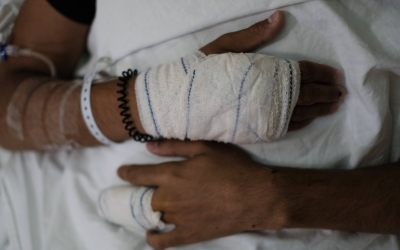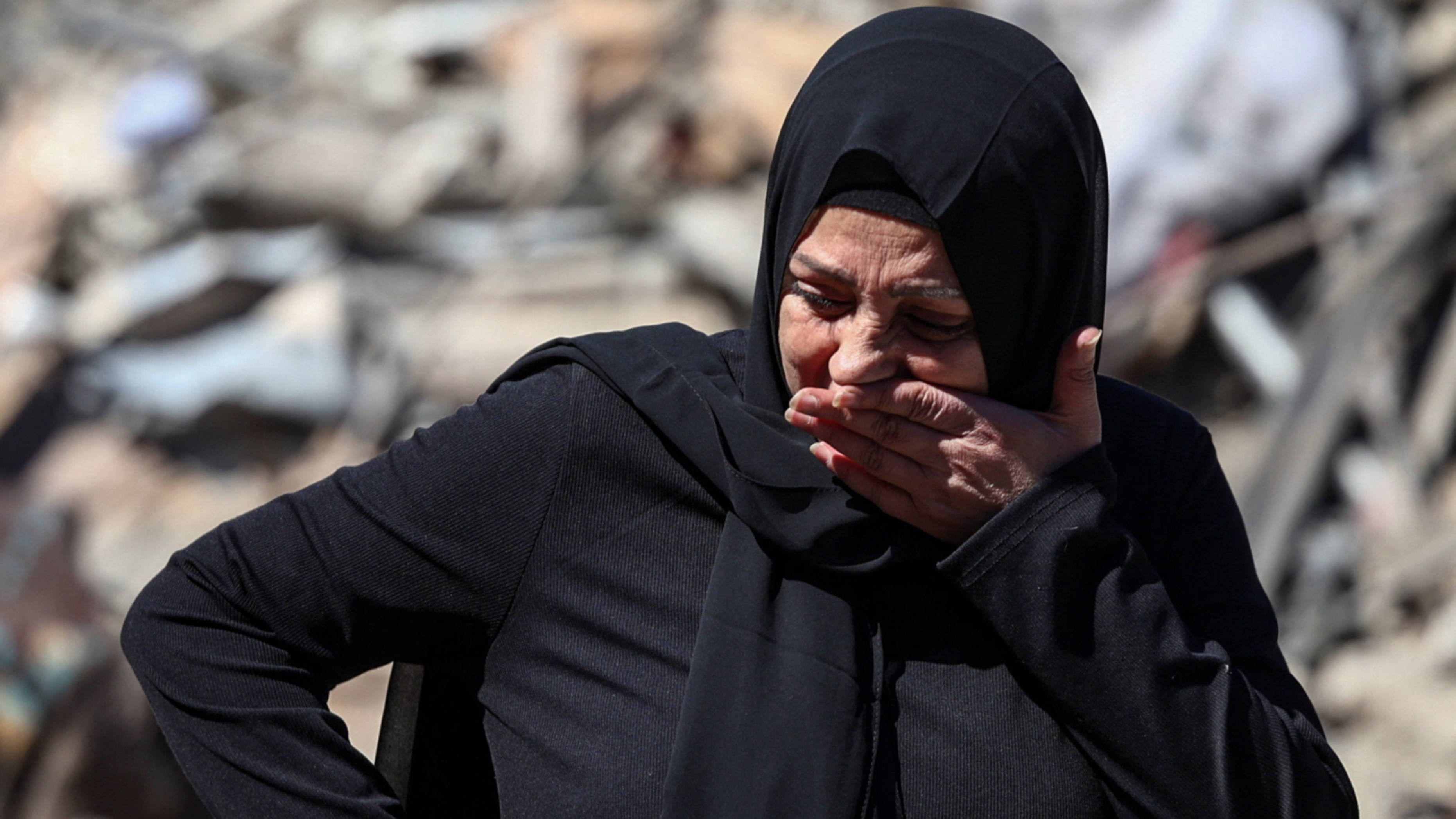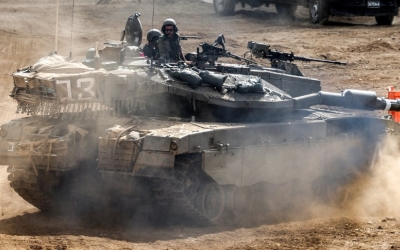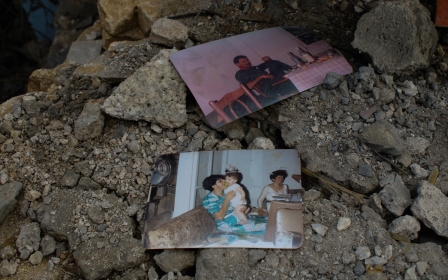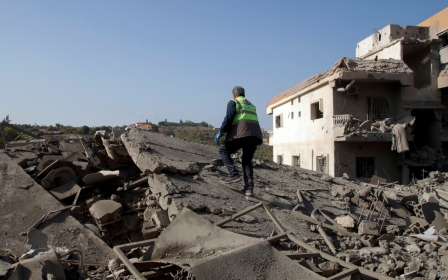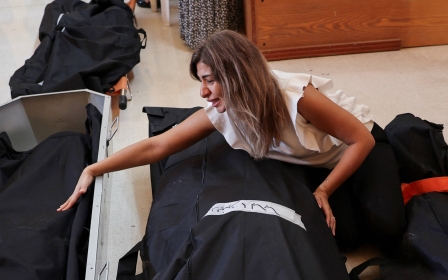No Hezbollah assets found in Lebanon hospital facing Israeli bombing
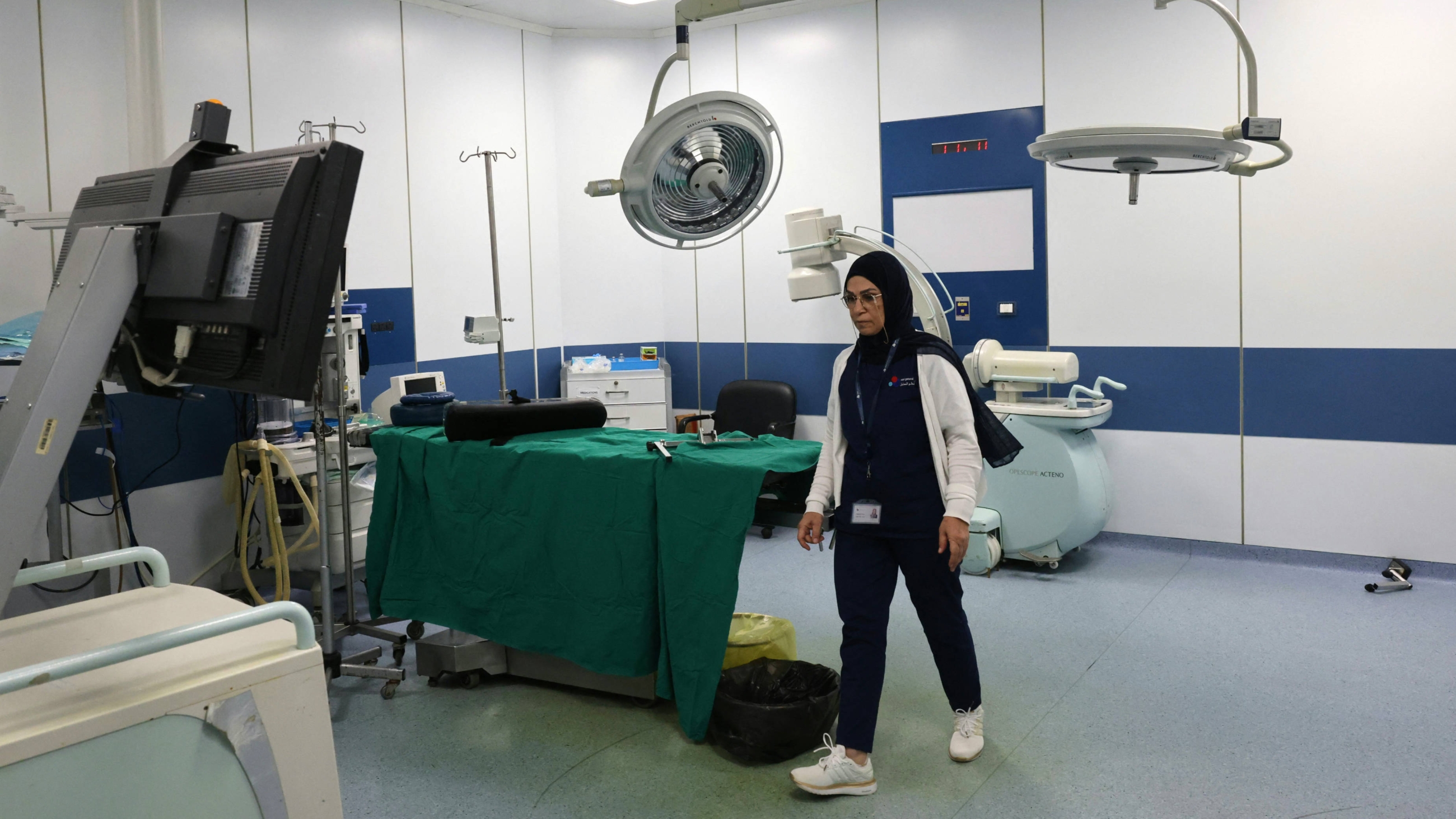
A swarm of journalists and cameramen opened drawers filled with scrubs and bed linens, rummaged through boxes of surgical tools, and meandered through the basement of Sahel Hospital, in southern Beirut, entering even its morgue and toxic waste closets.
A warning from the Israeli army on Monday evening that Hezbollah was storing “hundreds of millions of dollars in paper currency and gold” underneath the hospital shocked its staff, who invited press on Tuesday to inspect the area.
Israel provided no evidence for its claim that cash was being kept under the hospital. Instead, it circulated an animated graphic suggesting that a Hezbollah bunker was underneath the medical centre, where it said the group’s former secretary general, Hassan Nasrallah, who was killed in an Israeli strike on 27 September, had sheltered.
“When we first received the news we were in shock,” a nurse and educator at the hospital, Halimah el-Annan, told Middle East Eye from one of the ground floor examination rooms.
Annan has been working at the university hospital in Beirut’s southern neighbourhood of Haret Hreik for nearly 40 years. During which time, she said, she has never seen or felt any sort of construction or movement below her.
New MEE newsletter: Jerusalem Dispatch
Sign up to get the latest insights and analysis on Israel-Palestine, alongside Turkey Unpacked and other MEE newsletters
“This is a private hospital belonging to the Alame family, which has no relation to Hezbollah, the Amal party, or any other political party,” Annan said.
'This is a private hospital belonging to the Alame family, which has no relation to Hezbollah, the Amal party, or any other political party'
- Halimah el-Annan, nurse
“Sahel hospital is a civilian hospital. It must continue its work.”
However, she fears Israel might do to Lebanon what it has done in Gaza, where entire hospitals have been bombed under the justification of Hamas activities inside.
“We saw what happened in Gaza, anyone would be scared,” Annan said.
Ramzi Kaiss, a Lebanon researcher with Human Rights Watch (HRW), told MEE that, “Medical facilities, such as hospitals, have special protection under international humanitarian law (IHL), so they cannot be attacked.”
“They cannot be attacked unless the facility is being used to commit - outside of its humanitarian function -attacks that are harmful to the enemy. The presence of millions of dollars of cash or gold underneath the hospital does not result in the hospital losing its protection.”
Patients evacuated
Immediately after Israel’s warning spread on social media, the hospital staff rushed to evacuate its 10 patients, terrified Israel would strike the building.
In around 15 minutes, they managed to bring all the patients outside. Some were in wheelchairs and others were still hooked to IVs.
'We sent the patients to safe areas, although there are no safe areas in Lebanon now'
- Mariam Hassan, doctor
The hospital staff then loaded them into their personal cars and took them to locations they hoped would be safer, nurses recounted to MEE.
“It was very hard to evacuate the patients, we had to find them space at other hospitals, or other places, very quickly,” Dr Mariam Hassan, the hospital’s emergency room director, told the press.
She noted that the hospital had already significantly reduced its capacity, given Israel’s heavy bombardment of the surrounding neighbourhood. However, she said it still remained operational to treat the most critical patients.
“We sent the patients to safe areas, although there are no safe areas in Lebanon now,” said Hassan, her voice quivering.
Behind her, a television above the reception desk displayed images of “The Best Team”, showing joyful photos of the hospital staff. A young, female staff member stood underneath the television, watching the press flow in. Her eyes were filled with tears.
‘Go down to Hezbollah’s private shelter’
As journalists were searching Sahel Hospital, Israel’s Arabic-speaking spokesperson, Avichay Adraee, posted on X to the “media personnel” there: “Go to the specific locations we have revealed and do not waste your time on theatrics inside the medical departments.
“Go down to Hezbollah’s private shelter. Dargham Street, Building No 7, Airport Road, Haret Hreik. Entrance and exit in the Al-Ahmadi Building and Sahel Center Building. Go there,” Adraee instructed the press.
MEE followed Adraee’s directions and headed across the street, through a small courtyard between two office buildings, and then entered an underground parking garage - where the animated video indicated there was a passageway leading to the supposed “Hezbollah bunker”.
The garage was pitch black, with just a few dusty cars. MEE walked around the premises with a flashlight, searching for hidden doorways. One door was closed with a rusty padlock and another storage room shuttered, but there were no tunnels nor gold to be found.
Two security officers let the journalists search the garage as they pleased.
“Why would you use a $20 lock to guard millions,” one officer joked, following comments on the locked door.
‘People were sleeping’
Meanwhile on Tuesday, just a minutes-drive from Sahel Hospital, a neighbourhood was mourning an Israeli attack the night before. The strike on the Jnah area, in Beirut’s southern Ghobeiry municipality, killed 18 people, four of them children, and wounded 60 more, according to Lebanese health authorities.
An entire apartment building was flattened in the crowded residential area where Lebanese, Syrian and Sudanese families were living, some of whom had already fled their homes under Israeli fire in the country’s south.
Across the street, Rafik Hariri University Hospital - one of Lebanon’s largest public hospitals - had also suffered minor damage.
When MEE arrived at the scene, rescue workers were still searching for five missing bodies in the rubble, picking through the children's books and winter blankets amid the debris.
Residents of the area were gathered near the site. Some were still wearing pajamas, bandaged and bloody, and others were crying.
“[Israel] is striking civilians, all civilian organisations and places,” the mayor of Ghobeiry, Maan Khalil, told the press at the site.
When the building was hit, at around 10:30pm on Monday night, Khalil said that “people were sleeping, most of them were women and children.”
That night, news channels streamed footage of panicked people fleeing the area on foot.
‘Short notice orders’
Israel had warned residents to leave just a mere 15 minutes before the strike, an insufficient amount of time for everyone to leave their homes.
“The short notice evacuation orders we’re seeing - where strikes are occurring merely minutes after such orders are given - are not effective as advanced warnings, and do not fulfil the requirement that parties have to take all feasible precautions to avoid civilian harm,” Kaiss, from HRW, said.
Amnesty International, another rights group, has reported that Israel’s “warnings” issued to residents in the southern suburbs of Beirut and south Lebanon are “misleading and inadequate”.
On Tuesday afternoon, Israel issued another order for residents in a different neighbourhood in Ghobeiry to leave their homes. Less than 30 minutes later, a 2,000-pound bomb barrelled toward an apartment building, bringing it to the ground.
Just metres away from the attack, Hezbollah was holding a press conference for dozens of local and international journalists, who rushed out when word spread of the imminent attack.
‘When I come to the hospital I feel safe’
At Sahel Hospital, the nurse, Annan, explained how after decades of working at the hospital she feels it has become her “second home”.
“I consider Sahel as my second home, which has embraced me and my family,” she said.
“When I come to the hospital I feel safe, because we know this hospital doesn’t belong to anyone.”
Annan, like other doctors and nurses MEE spoke to, doubted that Hezbollah would keep money underneath the hospital, putting at risk the patients’ lives.
“Hezbollah wouldn’t risk sick peoples’ lives, they might have their own [storage] places, but not in hospitals where there are patients and people,” she said.
“I’m scared on the streets, but not in Sahel Hospital,” Annan added. “If I were to die in this place, I’d be dying in my home.”
The strike near the Rafik Hariri University Hospital late on Monday brought the nationwide death toll for the day to 63, health authorities said.
At least 2,551 people have been killed and more than 11,860 wounded in Israeli strikes on Lebanon since 8 October 2023, according to the Lebanese health ministry.
Middle East Eye delivers independent and unrivalled coverage and analysis of the Middle East, North Africa and beyond. To learn more about republishing this content and the associated fees, please fill out this form. More about MEE can be found here.


